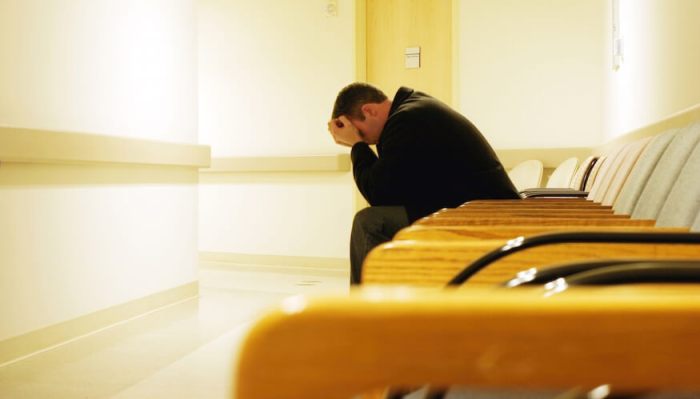It’s that time of year again: Thousands of students across the country are getting ready to go back to school. But whether they’re heading off to college for the first time or returning to campus, they might be feeling some anxiety along with their excitement.
Anxiety is one of the most common mental health disorders in adolescents, said Dr. Lindsay Gerber, a licensed clinical psychologist at the Mount Sinai Adolescent Health Center. And since college comes with a lot of expectations, changes and stressors, students often deal with mental health issues.
“We see a lot of kids coming in from local colleges in the area or who have been here a couple of years and are now transitioning to go off to college,” she said. “There’s a lot of worries of ‘what’s it going to be like, am I going to fit it, how am I going to take on this new responsibility of academics and social life?’ Kids get really excited about the increased freedom, but at the same time with that freedom comes a lot of fear.”
In spring of 2017, 20 percent of college students had been diagnosed or professionally treated for anxiety, and 17 percent for depression, within the previous year, according to an American College Health Association survey of more than 63,000 students.
Sixty-two percent of all students reported feeling “overwhelming anxiety” and more than 50 percent said that they had felt things were “hopeless” over the previous 12 months.
“Anxiety is simply the body’s natural response to stress, [but] it really becomes problematic when it’s so heightened, so increased that it impairs your ability to function,” Gerber said. “When you think of college freshman, there’s a lot of change going on for them — separation from friends and family, the life they’re accustomed to, a change in the whole setting, maybe they’re going out of state. There’s a lot of the unknown.”
College students and mental health: Increasing demand for resources
That doesn’t mean students should just expect to struggle. Most colleges offer campus resources for mental health, and students are turning to them — schools have seen a 30 percent average increase in the number of students visiting counseling centers between 2009 and 2015, according to the Center for Collegiate Mental Health.
Colleges are taking care beyond counseling centers, as well. From the City College of New York to Columbia University, schools have brought therapy pets onto campus to comfort both students and staff. Harvard University holds virtual workshops on topics like “calming the worried mind” and offers remote counseling with a telehealth company called iHope. At the University of Pennsylvania, a program called I CARE trains students, faculty and staff to recognize signs of distress so they can intervene.

Annie Oakley, a therapy dog from Dog B.O.N.E.S., center, is petted by BU freshmen students. Photo: Getty Images
Still, the increase in students seeking services means some schools are overwhelmed when it comes to providing care. Or students may want to look for support off campus. That’s where a service like the Mount Sinai Adolescent Health Center could come in.
Beyond finding a care center, Gerber wants to encourage students to consider extracurriculars like sports to clubs as mental health resources as well, because it connects students and gets you out of your dorm.
Another piece of advice? Be wary of social media. Students who struggle with anxiety and depression may compare themselves to what they see on other’s Instagram feeds, she said, “but 99 percent of the time, in my opinion, it’s not reality.” And remember, there are national resources as well, like the Crisis Text Line anyone can access by texting HOME to 741741.
The adolescent and young adult time is so crucial, Gerber said, so it’s important to take care of yourself mentally.
“When you intervene, you can really change the trajectory of [someone’s] life,” she said. “We’re really trying to make the next generation mentally, physically and emotionally strong and resilient and ready to take on all of life’s challenges.”
For more information on the Mount Sinai Adolescent Health Center visit teenhealthcare.org. If you or someone you know is contemplating suicide, call the National Suicide Prevention Hotline at 1-800-273-8255.



















